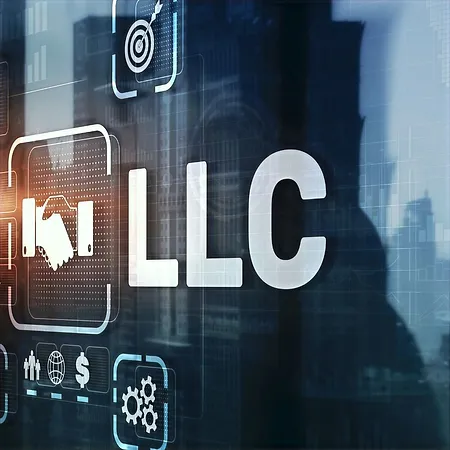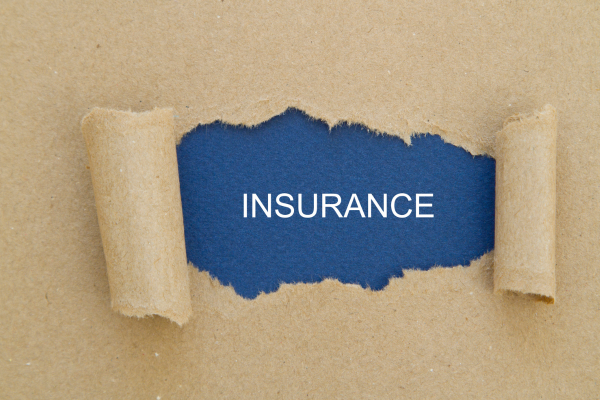While forming an LLC can go a long way towards shielding you from personal liability, it’s not enough on its own. Having the proper insurance policies in place will ensure that both your business and you are covered should anything unexpected occur.
As a small business owner, you may already be familiar with the legal entity structure known as a Limited Liability Company (LLC). But you may not be aware that there are other forms of financial protection that an LLC alone cannot provide.
While there’s no one-size-fits-all approach to forming a small business, having the right insurance protection in place is essential if you want to protect both your personal assets as well as those related to your LLC.
In this article, we’ll explore the reasons why forming an LLC is important when legally structuring your business, and why having the right types and amounts of insurance coverage is beneficial too.
What is an LLC?

Let’s start by reviewing what an LLC is.
A limited liability company, or LLC, is a business structure formed by state statute.
The owners of an LLC are call “members”, and there is no limit as to the number of members an LLC may have.
LLCs may be owned by individuals or by other LLCs or corporations. An LLC with only one member is call a “single member” LLC.
An LLC combines the best of a corporation, partnership and sole proprietorship and they are a popular business structure in the US, particularly with small and medium-sized businesses.
LLCs provide the advantages of corporations while allowing business owners the ability to limit their personal liability for business depts and legal troubles.
Why Do I Need Insurance?

As a small business owner, it is essential to protect yourself from unforeseeable events that might harm your business.
Setting up the right business structure, in the form of an LLC, for example, is a good start, but it’s not enough.
While an LLC helps protect a small business owner from being personally liable for business debts, it does not protect an owner from the risks and challenges that can arise in the course of business operations.
For example, if a client slips and falls and is injured while meeting with you at your place of business, the limited liability protections provided under an LLC will not protect you as the owner from being legally liable for your client’s injuries.
For this reason, it is important to have the right insurance coverages in place.
What Kind of Insurance Do I Need?

Just as there is no one-size-fits-all approach to forming a business, there is no one-size-fits-all approach to small business insurance coverage.
Depending on the kinds of products and services your small business provides, it may be wise to purchase different types of insurance.
However, at the very least, the types of insurance coverages that all small business owners should look at purchasing include: General Liability, Commercial Property, a Business Owners Policy (BOP), Professional Liability, and Workers Compensation.
General Liability Insurance
General Liability insurance, also referred to as business liability insurance or commercial general liability insurance, is extremely important for any business entity and should be considered a core business insurance coverage.
This kind of policy helps shields you from claims stemming from customers or clients who experience bodily injury and property damage due to your company’s products, services, or operations.
Without general liability insurance, you put yourself at risk of emptying out your cash reserves or worse–going bankrupt in the event of a claim from an injured or damaged third party.
Commercial Property Insurance
Whether you lease your space or own your own building, commercial property insurance, or business property insurance, is something that every business owner should look at purchasing.
Commercial property insurance can help protect your business from the financial impacts associated with incidents like fire, theft, wind damage, or a building collapsing under the weight of snow.
Even if your business does not own the building within which it operates, it likely has business property, such as office furniture, equipment, or inventory. A commercial property policy can provide coverage for the contents used for your business operations.
Business Owners Policy (BOP)
A Business Owner’s Policy (BOP) is a comprehensive insurance package that combines business property and liability insurance into a single policy. It is designed to provide coverage for small businesses and offers protection against various risks and exposures.
This type of policy is particularly beneficial for small business owners as it simplifies the insurance process by bundling multiple coverages into one convenient package.
A BOP typically includes coverage for property damage, liability claims, business interruption, and sometimes even additional optional coverages.
Professional Liability Insurance
Professional Liability Insurance, also known as Errors and Omissions (E&O) insurance, is a type of insurance that protects businesses against legal claims for errors or omissions made while providing professional services to clients.
Claims against your company can arise from services delivered or not delivered by your business, failure to meet your client’s expectations, or improper advice given your clients. This type of insurance can cover things like legal fees, settlements, and judgments that result from a claim.
Without it, your business can be held financially responsible for damages incurred by your clients. Also, it’s crucial to note that General Liability insurance does not cover legal claims arising from professional services.
Workers Compensation Insurance
Workers compensation is a crucial aspect of business insurance that provides coverage for employees who suffer work-related injuries or illnesses.
It is a state-mandated insurance program designed to protect both employees and employers in the event of workplace accidents.
Workers compensation helps ensure that injured workers receive necessary medical treatment and financial support while recovering from their injuries.
Conclusion
Purchasing insurance coverage for your small business LLC is a smart and cost-effective way to manage risks and protect your business. It can help you avoid excessive financial burdens and potential lawsuits that could put your LLC out of business.
Always be sure to consult with a reputable insurance agent that specializes in insurance policies for small businesses to determine what type of coverage suits your business best.
****This article is intended for informational/educational purposes only. It is not meant as, nor should it be interpreted as, actual legal advice regarding real estate investing of any kind, or regarding the formation of an LLC for any purpose, including for the purpose of real estate investing*****

